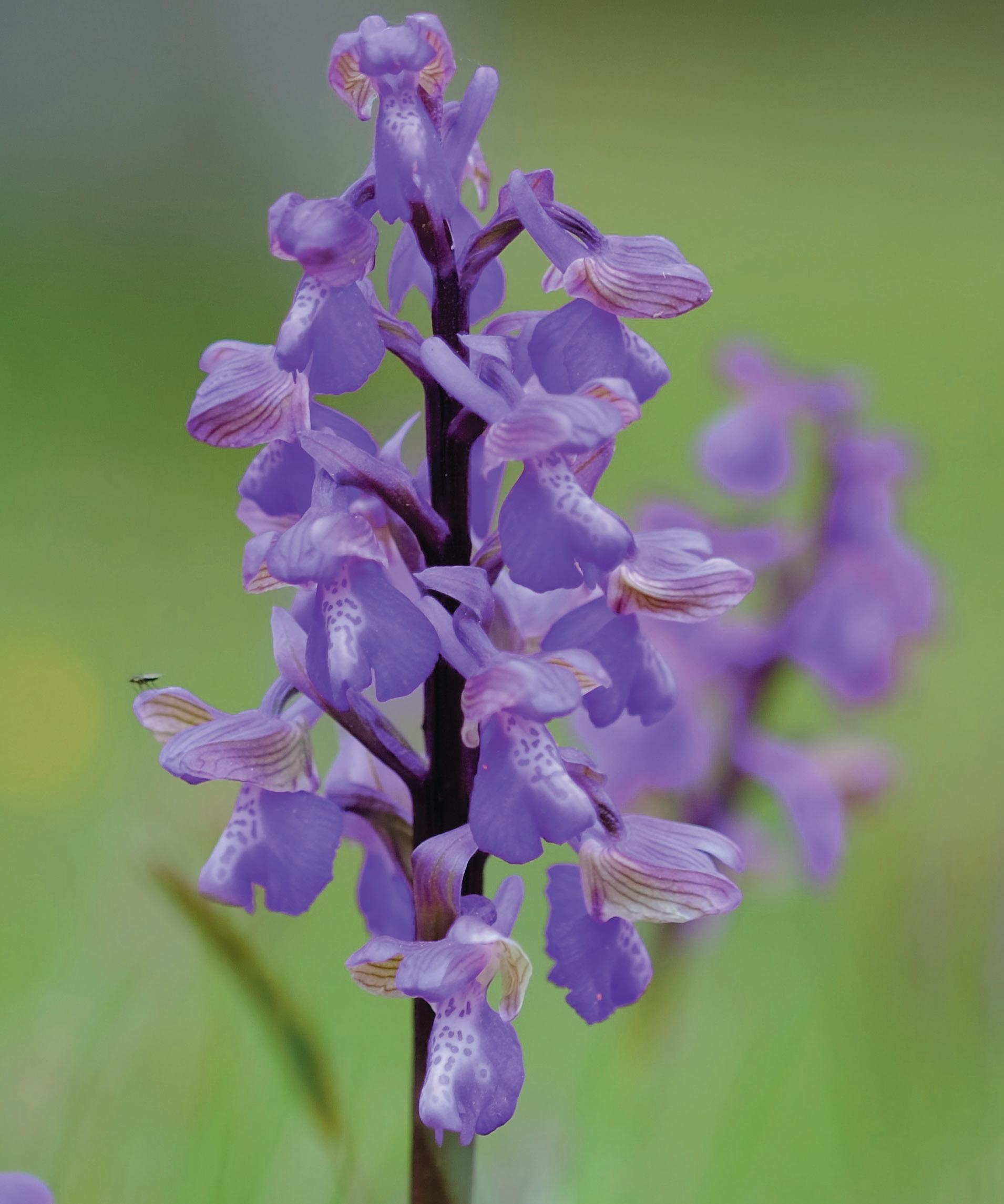

BSBI: Who We Are and What We Do
The Botanical Society of Britain and Ireland is for everyone who is interested in the wild plants of Britain and Ireland. Since our inception in 1836, we have welcomed all botanists - professional and amateur, beginner and expert - and the Society remains the biggest and most active organisation devoted to the study of botany in Britain, Ireland, the Channel Isles and the Isle of Man.
BSBI’sgoalsareto:
– build a diverse community of botanists to sustain and develop the skill base; – provide high quality, impartial data and interpretation for research and to help address biodiversity loss and climate change; and
– disseminate information to drive a passion for plants.
BSBI has a long and influential publications history, including plant distribution Atlases and our series of identification Handbooks. Our research, training and outreach programmes benefit botanists across Britain and Ireland, whether beginners or experts. BSBI pioneers new approaches to data collection and distribution mapping, and has become one of the world’s largest contributors of biological records. BSBI’s distribution mapping projects record new plant arrivals and changes in the distributions of both native and non-native plants.
These achievements are only possible thanks to our many volunteer members, whose records are validated by BSBI’s network of c200 volunteer Vice-County Recorders and c100 specialist taxonomic Referees, and to our voluntary officers, committee members and trustees, who are responsible for the governance of the Society.
With twelve full-time or part-time staff members during the period under review, we have been able to provide effective support to our members and ensure efficient management of the Society and its finances.
This Annual Review includes messages and updates from many of these staff members and volunteer officers, telling you about our activities and achievements during 2022/23, starting with a message from BSBI President Micheline Sheehy Skeffington.
BSBIStaff:
Julia HanmerChief Executive
Kevin Walker Head of Science
Gwynn Ellis Membership Secretary
Julie Etherington Finance Manager
Paul Green Ireland Officer
Matt HardingScotland Officer
James Harding-Morris Countries Support Manager
Chantal HelmTraining Coordinator
Tom Humphrey Database Officer
Louise Marsh Communications Officer
Peter Stroh Scientific and England Officer
Sarah WoodsFundraising Manager
Message from the President

Looking
back over the last year, it’s hard to believe it’s all over. The build-up to the seven Atlas launches grew to a crescendo in March this year. Plant Atlas 2020 is now out there and a delight to peruse.
Online, it’s so useful to be able to check more detail - date classes, superb photos and – what is really useful for some species – the tetrad frequency.
It would be easy to say ‘so what? We’ve done that now, let’s just focus on a few nice places and plants we like to see’. But of course, the stark message in both the UK and Irish summary reports is that species abundance and numbers continue to decline. The more detailed monad-level or even finer grid recording has brought this stark message to the fore. Plant Atlas 2020 means we can pin-point sites and species for monitoring long-term.
BSBI has done well in recruiting new members and much interest. But unless we can work with the relevant authorities as well as stakeholders such as the farming community and forestry bodies, we are in danger of losing many more sites. So, Plant Atlas 2020 remains extremely relevant to all of us - let’s put it to good conservation use. Two schemes, the UK National Plant Monitoring Scheme and the Irish Rare Plant Monitoring Scheme, are both an excellent way to get continued data that should inform relevant bodies to improve habitat conservation for species.
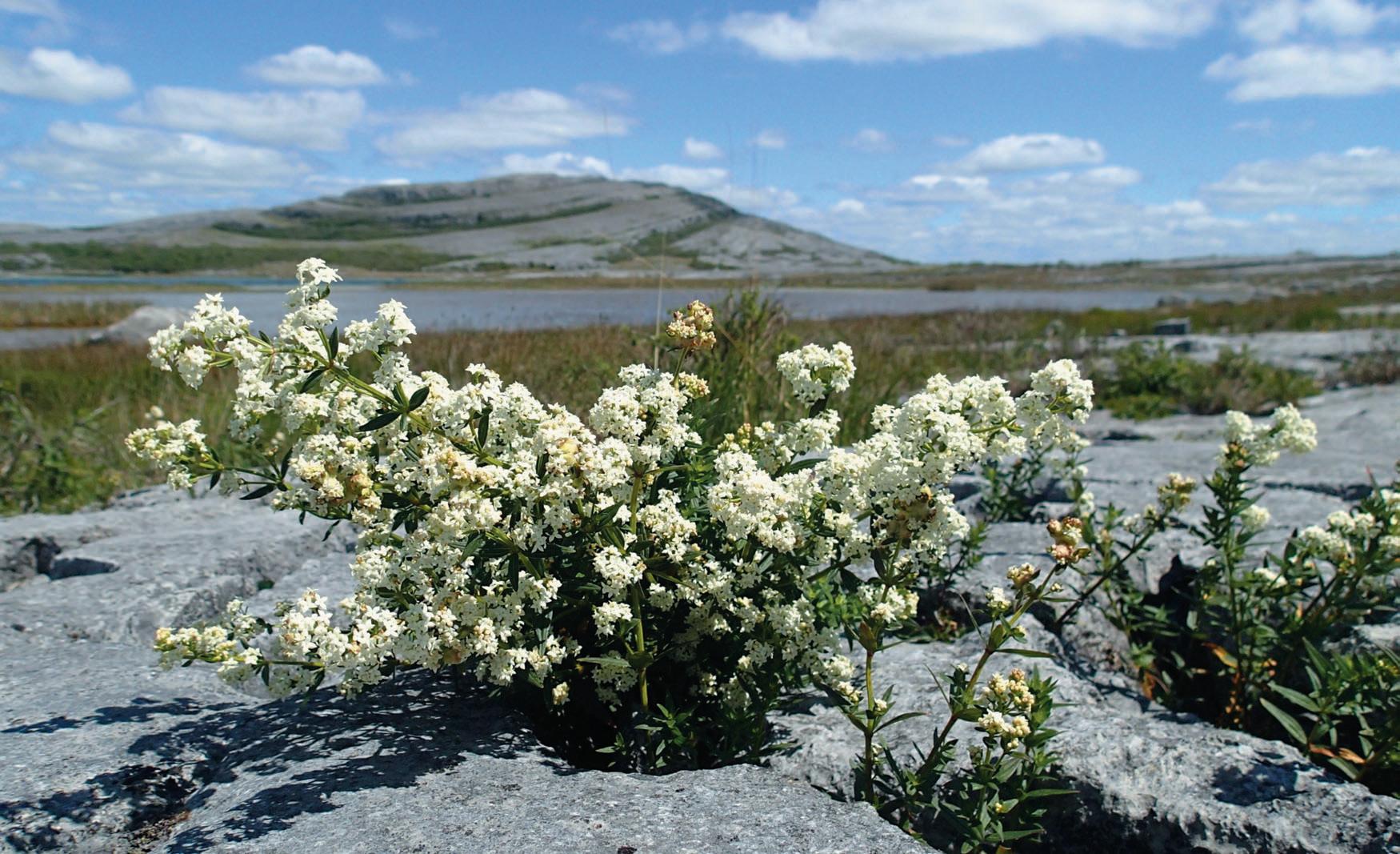
BSBI Science and Data
Thanks to our network of volunteers, supported as ever by staff and officers, BSBI was able to continue to provide data of the highest quality, vital for achieving our scientific and conservation objectives. Our ongoing partnerships with other organisations have also helped us deepen our understanding of changes in the British and Irish flora.
This year’s achievements include:
Plant Atlas 2020
The Society’s ambitious long-term project to publish a third plant distribution Atlas, based on plant records collected by members and supporters during 20 years of fieldwork, came to fruition in March 2023 with the publication of a two-volume book. A website was also launched featuring information about 3,495 native and introduced plant species, interactive maps displaying frequency and distribution at a variety of scales, and photo galleries to aid plant identification. Reports summarising the key findings of Plant Atlas 2020 were published, assessing changes since the 1950s and analysing the drivers of change, such as habitat loss and climate change. A series of online and in-person launches were held, supported by a publicity campaign which resulted in extensive media coverage, raising the profile of BSBI and our wild plants, and celebrating the achievements of the thousands of volunteer recorders who contributed to the project. Plant Atlas 2020 provides a valuable benchmark of the current state of the flora of Britain and Ireland, and underpins new insights into the effects of changing land management, biodiversity loss and climate change.
bsbi.org/plant-atlas-2020
BSBIDistributionDatabase
The BSBI Database currently holds more than 52 million botanical occurrence records collected by our volunteer members and supporters. These records supported the
recording and validation work for Plant Atlas 2020; they also provide external users with reliable data for academic research, education, conservation and land management.
bsbi.org/maps-and-data
Botanicalheatmaps
BSBI has been working with Natural England and the Woodland Trust to develop a series of botanical ‘heatmaps’ that use plant records of rare, threatened and positive habitat indicator species held in the BSBI Distribution Database. The aim is to identify areas of botanical interest to inform decision-making around land management activities such as treeplanting and to protect existing habitats that are important for wildlife and carbon storage, as well as directing and targeting positive conservation action such as agri-environment schemes. The summarised heatmaps are currently available to the general public, whereas the more detailed heatmaps are being used by land managers, conservationists and other decision-makers in England. Work is ongoing to extend this approach across the rest of Britain and Ireland over the coming years.
NationalPlantMonitoringScheme(NPMS)
The Scheme, a collaboration between BSBI, the UK Centre for Ecology & Hydrology, Northern Ireland Environment Agency, Plantlife and the Joint Nature Conservation Committee, provides quantitative data on the status of widespread plants and the habitats on which they depend; it also enables volunteers at all skill levels to get involved in
recording. BSBI has been working closely with partners on the methodology and assessment of the results, drawing out trends from the first seven years of data and helping to develop national indicators of habitat quality based on NPMS data. BSBI has also helped to provide training in identification skills and to promote the scheme in a range of periodicals and across social media to encourage wider participation.
bsbi.org/npms
PlantAlert
This citizen science project, launched in summer 2019, is a partnership between BSBI and Coventry University. Plant Alert enlists British and Irish gardeners to report any ornamental plants which are proving difficult to control in their gardens. The aim is to discover which garden plants have the potential to become invasive and problematic in future. Data are stored by BSBI and can be used for risk assessments of species as well as reports to the horticultural industry.
bsbi.org/plant-alert
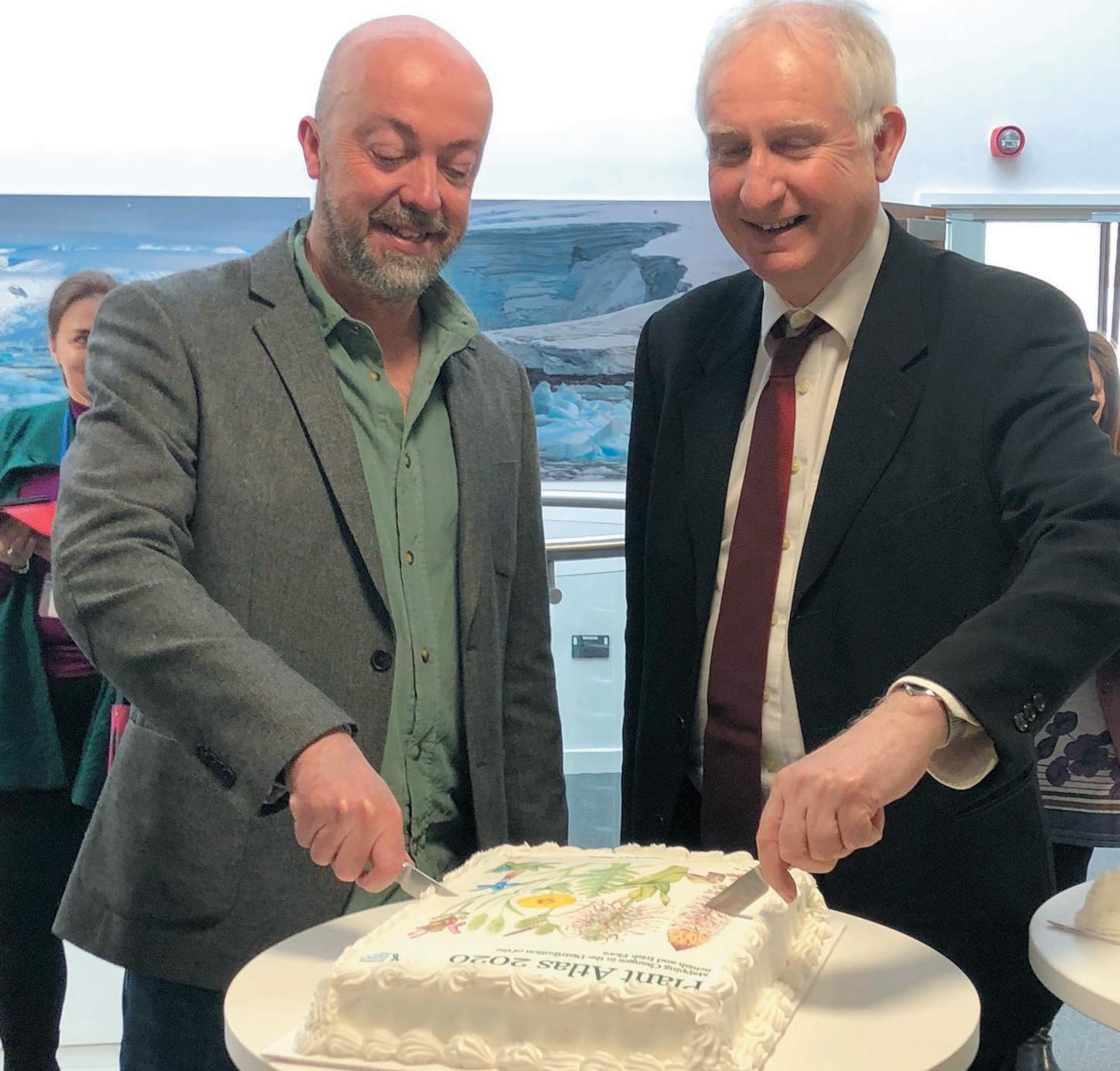
Building a diverse community of botanists to sustain and develop the skill base
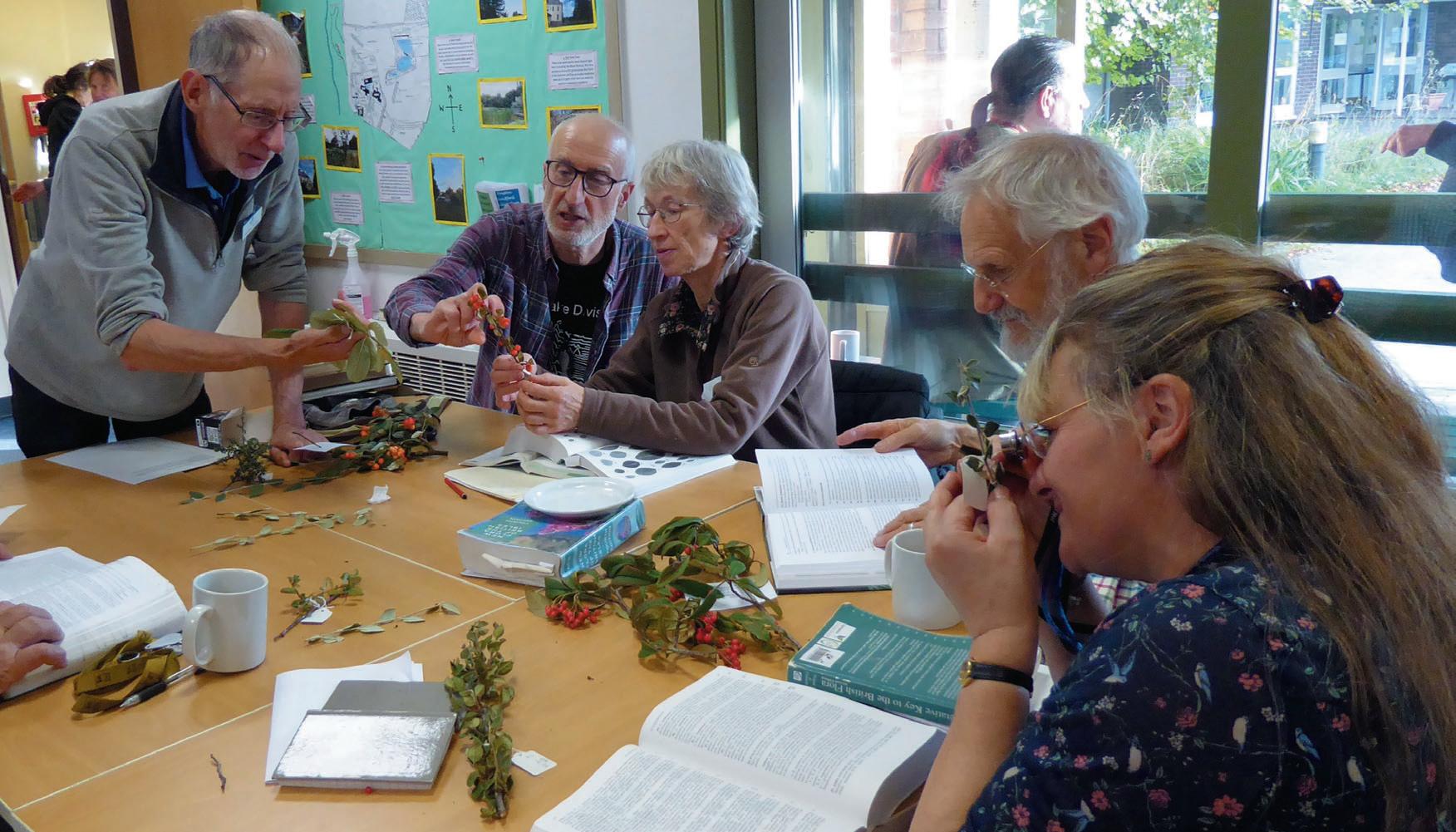
BSBI’s training provision was expanded during the period under review by bringing Identiplant and Field Identification Skills Certificates (FISC) in-house and appointing a Training Coordinator; we also awarded 29 Training, Plant Study or Science & Research grants.
By bringing FISC and Identiplant in-house, both of which were founded by BSBI members and supported by the Society since their inception, BSBI is establishing itself as a leader in botanical skills development and assessment. Dr Chantal Helm was appointed in 2023 to coordinate and develop both programmes, with initial aims of recruiting more Identiplant Tutors to meet demand, and growing FISC provision across Britain, alongside ongoing improvements to Identiplant course content and growing recognition of FISC as an industry standard.
In-person training activities resumed, with workshops on conifers, dandelions, brambles, eyebrights, sedges, rushes, grasses, composite flowers and seagrasses. The programme of
online training events, pioneered during lockdown, continued with webinars on seagrasses, non-native alders, and Irish scaly male-ferns, all recorded and uploaded to the BSBI YouTube channel where they are freely available to all. The online fern identification course continued to prove popular. Seven webinars and eight field training events were also held under the Aquatic Plant Project banner, thanks to funding from Ireland’s National Parks & Wildlife Services.
Work continued under the ‘Botany For All’ banner which aims to look at opportunities to promote equality, bring a wider diversity of people into the botanical community and provide them with opportunities to enhance their skills.
bsbi.org/training
Driving a Passion for Plants
Botanists were once again able to enjoy a programme of national and local field meetings and indoor events across Britain and Ireland, augmented by some online events and with many talks recorded and subsequently uploaded to the BSBI YouTube channel.
In total, 43 field meetings and indoor meetings were scheduled for the year 2022/23, with a highlight being the event formerly known as the BSBI Annual Exhibition Meeting, which was held in-person at the Natural History Museum, London, in November 2023 with a new name: the British & Irish Botanical Conference. It attracted 245 bookings and featured nine talks, two guided tours of the world-famous Sloane Herbarium, 24 exhibits and seven flash talks. All the talks were recorded and uploaded to the BSBI YouTube channel, where they had attracted 2,648 views by the end of March 2023.
The Annual General Meeting was held virtually as a separate event, to allow participation from members who did not wish to, or were unable to, travel to London. A programme of online winter talks kept botanists engaged from December to February, with recordings viewed 1,189 times by the end of March 2023.
England
Eight national field meetings were held in England at locations from Kent to Cumbria and from Sunderland to the Mendip Hills. Many local groups also organised programmes of recording and training events. The Annual Summer Meeting was held for the first time since 2019; based at FSC Malham Tarn, Cumbria, over a long weekend in July 2022, it attracted 42 participants, while a Recorders’ Meeting held at FSC Preston Montford, Shrewsbury, offered six talks aimed at more experienced botanical recorders. An online England AGM was held in February 2023 with talks on a theme of the impacts of alien plants. Plant Atlas 2020 launches were held in Newcastle and in Cambridge in March.
A new Countries Support Manager role was created, and James Harding-Morris was appointed in November 2022 to support and develop BSBI’s work across the whole of Britain and Ireland, including aiming to provide more consistent support in England and Wales.
bsbi.org/england
Ireland
As well as the 15 Aquatic Plant Project events, botanists in Ireland enjoyed seven field meetings at locations including Donegal, The Burren, Co. Longford and Co. Cork; an online Spring Conference with seven talks, recordings of which attracted more than 2,000 views; and an in-person Autumn Meeting with six talks and two workshops.
Plant Atlas 2020 launches were held at the National Museums of Northern Ireland and also at the National Botanic Garden, Glasnevin, Dublin, where Minister Malcolm Noonan TD opened the proceedings and visited the Herbarium.
bsbi.org/ireland
Scotland
Ten national field meetings and four workshops took place during the year, ranging from a one-day meeting held on Arthur’s Seat in Edinburgh and aimed at beginners, to a boat journey to gain records from Loch Maree Islands National Nature Reserve and a camping weekend to record plants on Mullach Coire Mhic Fhearchair and Sgurr Dubh.
The Society was mentioned in widespread media coverage of research carried out by Dr Sarah Watts, who sits on BSBI’s Committee for
Driving a Passion for Plants (continued)
Scotland, into impacts of climate change on arctic-alpine plants. Committee members also contributed to four national biodiversity consultations during the year under review, including the Tree Planting and Forestry consultation, which drew heavily on case studies provided by BSBI County Recorders. In November 2022, we welcomed Matt Harding as the Society’s new Scotland Officer following Jim McIntosh’s retirement after many years of exemplary service to botany in Scotland. Jim ‘bowed out’ at the Scottish Botanists’ Conference, held at RBG Edinburgh, which featured nine talks, six mini-workshops, 28 exhibits and two herbarium tours. Recordings of the talks had attracted 1,845 views by the end of March 2023. In March 2023, a Plant Atlas 2020 launch was held at the Royal Botanic Gardens, Edinburgh, with speakers including MSP Lorna Slater.
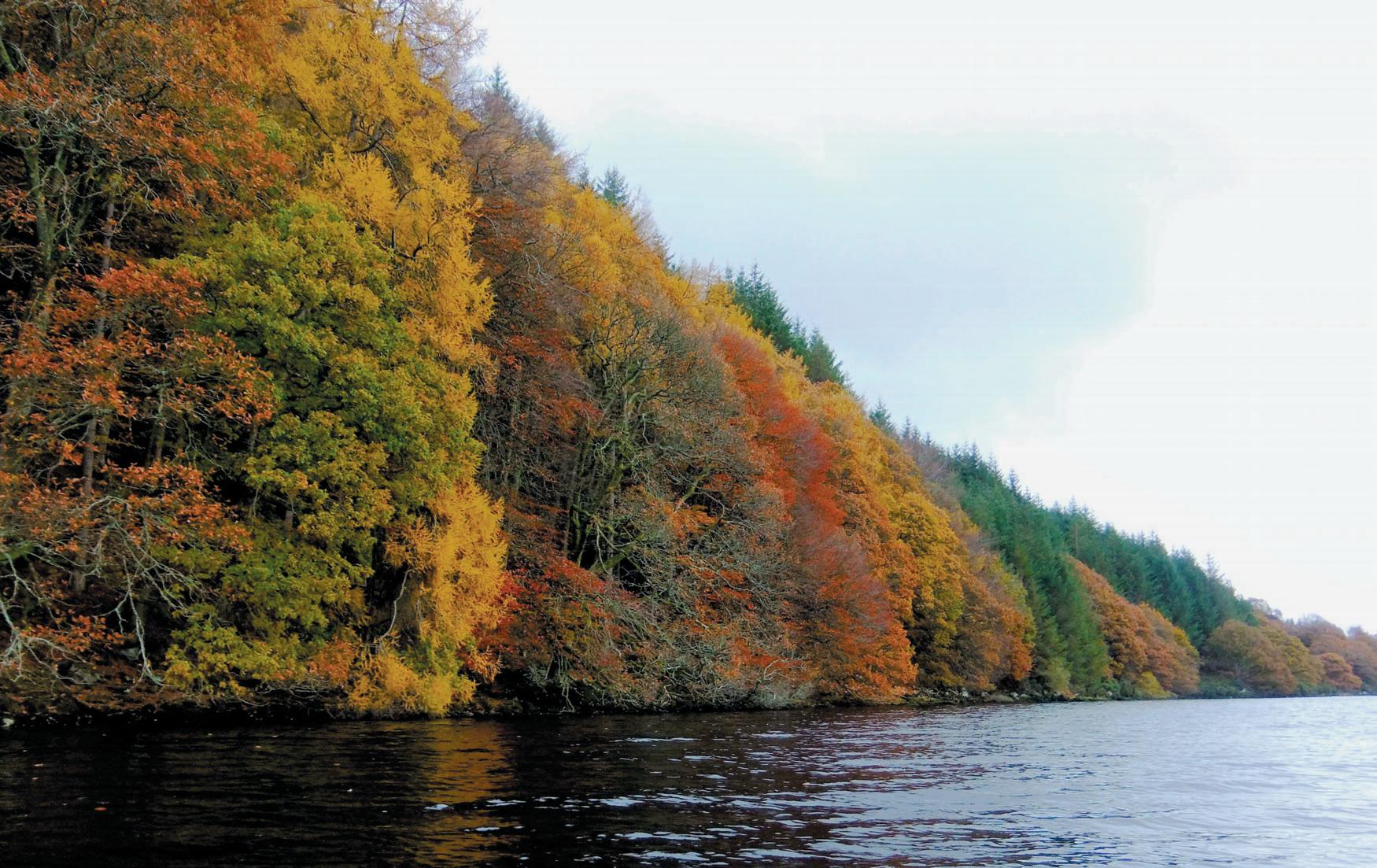
bsbi.org/scotland
Wales
A residential Annual Meeting, held in Bangor, and field meetings organised both nationally and by local groups, yielded some impressive plant records, including the finding of Fen Orchid Liparis loeselii by 11-year old Tristan Moss and fellow BSBI members during a visit to an MoD site in South Wales – this exciting find generated radio coverage and a report on the UK Government website; and the rediscovery of Narrow-lipped Helleborine Epipactis leptochila in Monmouthshire after almost a century.
Welsh members supported the National Botanic Garden (NBG) of Wales’ seed banking efforts by providing records and local level information about population status, and participating in six seed collecting trips. This support resulted in 23 ex-situ conservation seed collections for threatened species for the Millennium Seed Bank’s UK Threatened Flora Project and for the seed bank at NBG Wales. bsbi.org/wales
Spreading the Word
BSBI’s local botany networks, national media contacts, outreach activities, website, YouTube channel and social media platforms helped us reach new audiences, attract new members and disseminate information to drive a passion for plants.
We attracted national media coverage, with stories including a report in The Guardian about Giant Orchids found by BSBI member Hamza Nobes in Oxfordshire; The Observer carried a report about the Plant Alert project; and BSBI Scientific Officer Pete Stroh was quoted in reports in The Times and The Guardian about orchid thefts. The launch of Plant Atlas 2020 in March 2023 achieved extensive media coverage, with staff and officers interviewed on national TV, on BBC Radio 4’s Today programme and on RTE, while broadsheets including The Guardian, The Times, The Independent, the Financial Times and the Irish Times also carried features. Talks by Plant Atlas 2020 authors and other speakers at launch events were recorded and uploaded to the BSBI YouTube channel, where they had attracted more than 16,000 views by the end of March 2023.
Our network of local recording groups continued to flourish in 2022/23, with every vice-county in England, Scotland and Wales, and around half the vice-counties in Ireland, having their own webpages, blogs or social media accounts hosted by or accessible via the BSBI website. The BSBI News & Views blog continued to offer the botanical community across Britain and Ireland a chance to share the latest news about BSBI projects and publications, reports on national events and local activities, and links to plant ID resources. bsbi.org/news-views
We also continued to build our social media profile: by the end of the period under review, we had seen an increase of 13% in followers across our social media platforms. More than 41,000 organisations and individuals were
using the BSBI Twitter account to keep up with the latest botanical news from BSBI and to share plant photos and ID tips, while our Instagram account had attracted almost 9,000 followers by the end of March 2023; it and our Facebook pages helped us reach different audiences.
twitter.com/BSBIbotany facebook.com/BSBI2011 and facebook.com/IrishSectionBSBI/ instagram.com/bsbibotany/
BSBI
website
Our website now features more than 300 pages, a separate digital archive of botanical publications and an ever-expanding ‘members-only’ area. The site attracted more than 200,000 visits during the period under review, with the Maps and Training pages remaining the most popular, although the Field Identification Skills Certificate (FISC) page saw a 38% increase in visits - a testament to the importance of these industry standard tests, now brought in-house and administered by BSBI.
New Year Plant Hunt
Our twelfth New Year Plant Hunt attracted 1,691 plant-hunters from across Britain and Ireland, who braved severe weather to submit 1,002 lists comprising 10,199 plant records from across Britain and Ireland. In total, 477 wild or naturalised plant species or cultivars were recorded in bloom during the first four days of 2023, adding to a growing dataset and providing us with a clearer picture of how our wild plants are responding to changing autumn and winter weather patterns.
bsbi.org/new-year-plant-hunt
Membership
BSBI membership saw its biggest ever surge: an increase of 12%, with 3,810 members by 31st March 2023. This represents an increase of more than 30% over the past three years, far outstripping the target set in the BSBI Strategic Plan to grow the membership by 10% over the period 2021/24. BSBI staff, officers and volunteers continued to work together to find new ways to engage with, inform and inspire botanists at all skill levels,
and to expand the range of services available to members and supporters. We are very grateful to the many volunteers across Britain and Ireland who contributed their time and enthusiasm to record plants in their local areas and to join in activities such as the New Year Plant Hunt and Wild Flower Hour, and who regularly promoted the Society, and botany in general, via social media platforms.
bsbi.org/wildflower-hour
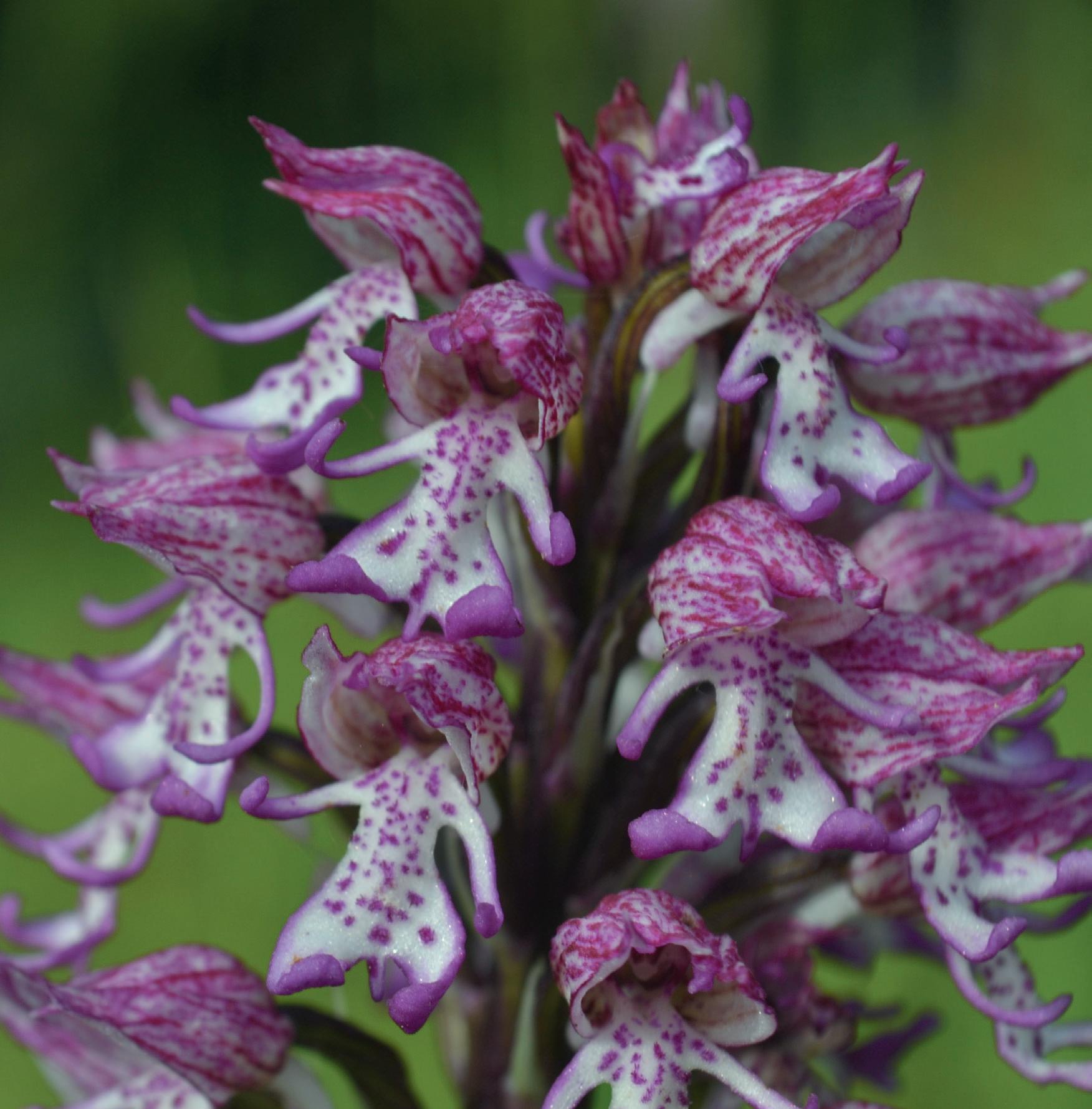
BSBI Publications
During the period under review Plant Atlas 2020, published in March 2023, was the Society’s most high-profile new title. A new BSBI Handbook on Lady’s-mantles was also published in April 2022. Members enjoyed prepublication discount offers on both titles. A Handbooks Editor, Liz Kungu, was appointed to support the publication of Handbooks already in the pipeline, and to bring new titles on-stream.
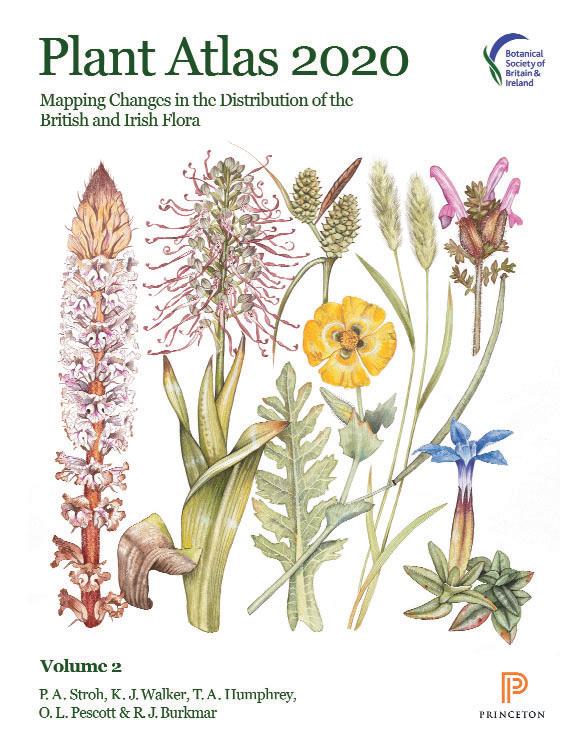
bsbi.org/handbooks
BSBI’s online, Open Access, scientific journal British & Irish Botany, published 26 papers during the period under review. Under Ian Denholm’s editorship, the journal continued to disseminate the latest botanical research by academics and amateurs relevant to the study of the British and Irish flora at no cost to either authors or readers. BSBI members also enjoyed access to a password-protected online archive containing more than 100 papers from our previous scientific journal, New Journal of Botany.
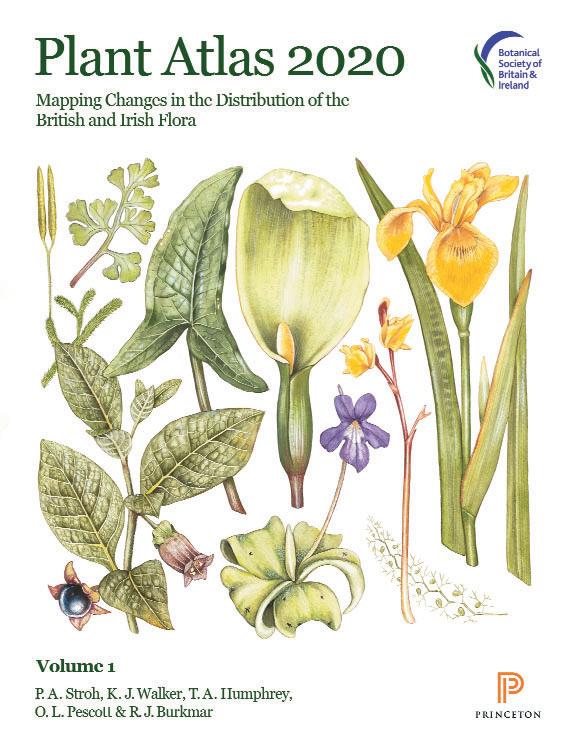
Under John Norton’s editorship, our colourful newsletter BSBI News provided members with another platform for sharing the latest botanical news, while electronic samplers of each issue acted as eye-catching advertisements for the benefits of membership. A paperless subscription option for BSBI News and other periodicals – including the Annual Review and the Yearbook – made it possible for members to enjoy immediate digital access to the Society’s periodicals portfolio while minimising the environmental impact of their membership. By the end of the period under review, more than 25% of members had opted in to this paperless format.
With two monthly electronic newsletters – one aimed at keeping all members, and any supporters who opt in, updated about BSBI’s activities, projects, fundraising, news and events, and one targeted at the botanical recording community - and annual newsletters for England, Ireland, Scotland and Wales, all available to view or download free of charge from the BSBI website, we believe that we are meeting the challenge of providing a portfolio of books and periodicals which will appeal to both BSBI members and the wider botanical community.
bsbi.org/periodicals
BSBI’s reputation and influence in botanical publications was augmented in 2022/23 with the publication of Plant Atlas 2020, a new Handbook and ever-increasing audiences for our membership and online periodicals.
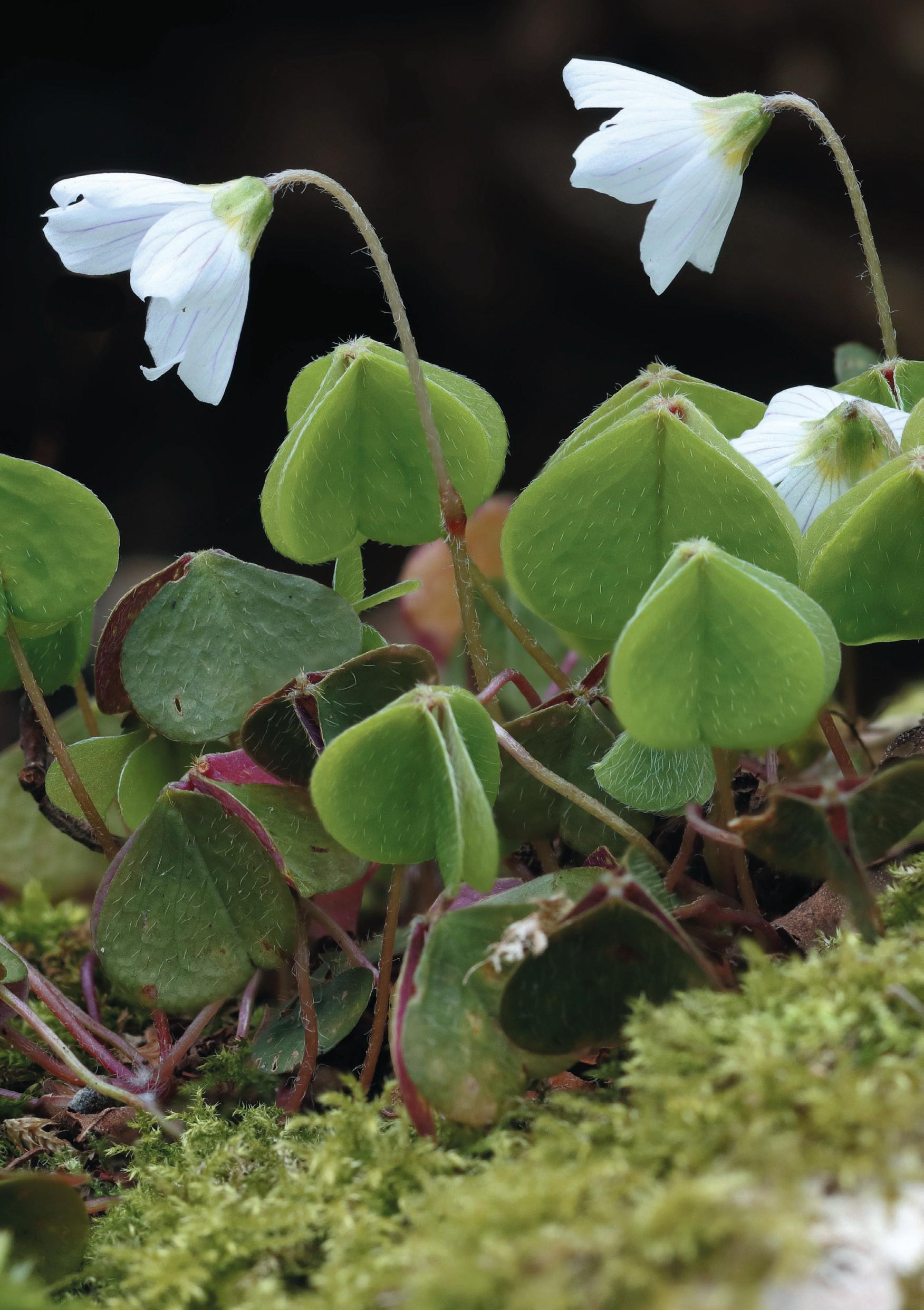
Financial Report 31 March 2023
Treasurer’s Report


BSBI’s 2023 Summarised Statement of Financial Activities (SOFA), Balance Sheet and Notes thereto appear on the next two pages.
For the year under review, the Board reports Net Expenditure for the Year, after losses on investments, of -£154k (2022; Net Expenditure -£18k, after gains on investments) and Net Assets at year-end of £834k (2022; £988k). A table setting out the last few years of General Fund Operating Surpluses / (Deficits) are reported below.
* This (£27k), together with the deficit of (£56k) on the Unrestricted Strategic Development Reserve and the small deficits on other reserves, comprise the total net Operating Deficit of (£84k) as per the SOFA.
As anticipated and reported last year, a net Operating Deficit has been sustained because of the continued focus on reshaping BSBI to lay the foundations of long-term financial sustainability as described in BSBI’s Strategic Plan 2020-2024. Despite a challenging economic backdrop characterised in 2023 by exceptionally high inflation, BSBI exceeded the £0.5M income milestone 2023 and, at £538,427 (2022: £459,438), total income is +17% versus the previous year. The hallmark of a healthy organisation is having several stable and diverse income categories (sources). This reduces the risk of a reduction in any one category threatening the future of an organisation and is central to BSBI’s Income Diversification Strategy 2021-2023. It is therefore pleasing that BSBI now has a total of ten income categories. For example, Royalties & Journal Support (2023; £24,260 vs 2022; £276) shows the start of royalty income arising on the launch of the Plant Atlas 2020 book in March 2023 and in 2023/24, Identiplant & FISC income will begin; all sustainable sources of income.
This year’s Annual Report and Accounts bsbi.org/about-bsbi include some interesting new additions: we explain how we fundraise and measure success; we also explain key risks faced by BSBI and how Trustees seek to mitigate them. Because Trustees recognise the importance of investing in a socially responsible manner, promoting the protection and health of the natural environment, we also talk about how and why we invest ethically and how our Investment Manager helps us to check this is actually happening.
Crucially, we have also begun to more accurately measure the vast amount of time volunteered to BSBI. The Board was humbled to learn that in excess of 11,000 days were volunteered in 2022/23, valued at a vast £1.7M, and is deeply appreciative of this; a contribution which illustrates BSBI’s true scale and reach. The continued delivery of our charitable aims is thanks to the generous support of the individuals, organisations, trusts and foundations whom we thank in full on page 16. The Board manages BSBI’s finances and future sustainability with the support of its Finance Committee, created in December 2022 in response to BSBI’s growth. The Board of Trustees has delegated authority for preparing this Report to the undersigned Trustees.
Financial Report 31 March 2023
Financial Report 31 March 2023
Notes to the Summarised Accounts
The Summarised Accounts presented here are not the full Statutory Accounts.
The full Statutory Annual Report and Accounts of the Botanical Society of Britain and Ireland for the year ended 31 March 2023, which have been approved by the Board of Trustees and have been subject to statutory audit, will be filed with the Charity Regulators and at Companies House in the Autumn. They
may also be downloaded from the “About Us” page on the BSBI website and a paper copy can be supplied to any member upon request. bsbi.org/about-bsbi
Thank You
BSBI gratefully acknowledges grants, donations and continued support from these individuals and organisations:
Arnold Clark Community Fund
Biological Records Centre/ UK Centre for Ecology & Hydrology, Wallingford
British Antarctic Survey
Cambridge University Botanic Garden
Cambridgeshire Wildlife Trust
Chapman Charitable Trust
Department for Environment, Food & Rural Affairs
Edge Hill University
Emeritus Professor Clive A. Stace BSc PhD DSc
Environment Agency
The Estate of the late Mr Philip Oswald
Greenwings Wildlife Tours Ltd
Habitat Aid Ltd
Harrogate & Districts Naturalists’ Society
Joint Nature Conservation Committee
Joshua Styles
National Botanic Gardens, Glasnevin, Dublin
National Botanic Gardens, Wales
National Museums Northern Ireland
National Parks and Wildlife Service
Natural England
Natural History Museum, London
Natural History Society of Northumbria
Natural Resources Wales
Naturesave Trust
NatureScot
Plantlife
Royal Botanic Garden Edinburgh
Sabina Sutherland Charitable Trust
The Finnis Scott Foundation
The MacRobert Trust
The Owen Family Trust
The Wildlife Trusts
The William Dean Countryside and Educational Trust
West Lancashire Wildlife Group
Thank you also to the many other unnamed individuals and organisations who have made donations, often anonymously – we are very grateful for all your support.
The Society also wishes to thank all those members who have served, both nationally and regionally, as officers, on committees, as editors and indexers, in leading and arranging field meetings and indoor events; as assistant secretaries and minuting secretaries; and the many members who have participated in surveys, prepared reports, represented the Society at outreach events and promoted our work via social media. BSBI would especially like to thank our network of 201 Vice-County Recorders and 98 Referees, acknowledging the invaluable work they do and their huge contribution to BSBI’s success.
Many of these volunteers have served for very many years and, while this is only a selection, the Society notes the sad deaths during the period covered by this review of Trevor Evans, Sheila Gilmour, Barry Goater, Alistair Godfrey, Eric Greenwood, Bengt Jonsell, Gren Lucas, Liz McDonnell, Rose Murphy, Chris Page, Donald Pigott and Terry Swainbank.
Without the contributions of all these volunteers, and our wider membership, the work of the Society would not have been possible.
Plant images used throughout this Review were submitted as entries to BSBI’s annual Photographic Competition bsbi.org/bsbi-photographic-competition
Front cover: Green-winged Orchid Anacamptis morio in East Sussex (Susan Greig)
RegisteredAddress:BotanicalSocietyofBritain andIreland
CharityNumbers:EnglandandWales(1152954) Scotland(SC038675)
RegisteredCompanyNo.:EnglandandWales(8553976)
